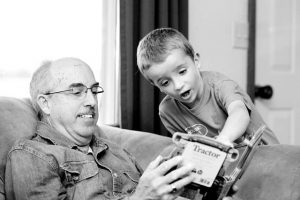Coping with Bereavement
Bereavement is something we will all experience sooner or later.
No matter how expected the passing of a loved one is, it’s hard to predict exactly how we will react.
What we do know, however, is that it can be one of the toughest things to deal with in life and that it is totally natural to feel a whole range of different emotions that can seem confusing and overwhelming at times.
There are some important things to remember to help you understand the things you’re going through and a couple of “to do’s” that could make things a little easier for you.
Our Reaction to Loss
People go through five emotional stages when we lose someone; denial, anger, grief, adaptation and acceptance.
For example you may feel numb at first and try and block all thoughts of the person out (denial), then ask questions like “Why them?” or get angry at the unjustness of the world (anger).
There follows a period of low feelings (grief) where you may lose interest in things and other relationships may suffer.
You then start to find different ways to cope with your grief (adaptation) before things start to get back to normal (acceptance).
Remember there are no Rules
You may find yourself at some time thinking “I should be snapping out of this now” or people may tell you that “you should be over this by now”.
Remember, there are no rules and no time limits for going through the above process.
It may take months or years; the only thing you need to know is that you will know what feels right.
There are things you can do to help yourself feel better however.
It’s Good to Talk
Although it might be painful at first, talking has been shown to be a great release.
Also, crying is our bodies natural way to release emotion and feel a bit better; it’s absolutely fine to cry.
If you don’t want to talk to family members or friends then Cruse Bereavement Care do a fantastic job.
Go to www.crusebereavementcare.org.uk to find out more.
Remember the Good Times
Our last memories of our loved ones can sometimes be memories of the very end, looking frail and poorly.
These can stick in our minds and be the only thing we can think of. Train your mind to remember all the good times and fun instead.
Dig out some old photographs and immerse yourself in wonderful memories on a daily basis.

